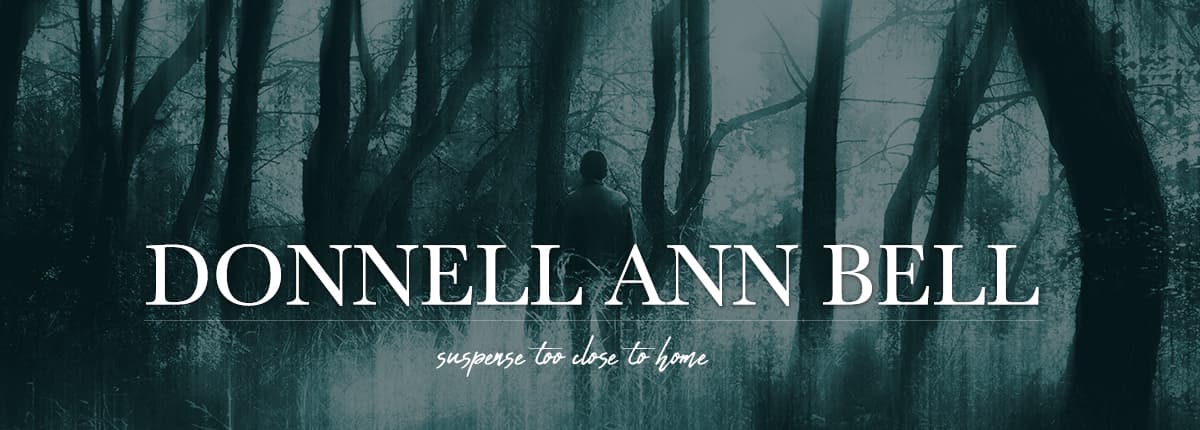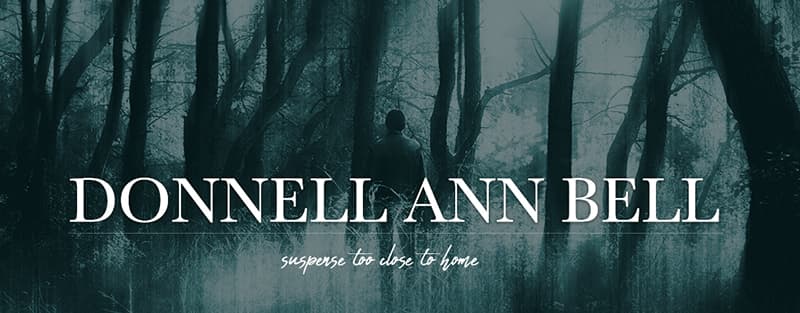 Welcome to my blog and Interview Alley. Before we begin, I’d like to share what I learned “outside” of reading the Advanced Reader Copy (ARC) of Carolina Moonset. I met Matt Goldman at Left Coast Crime, late April in Albuquerque. After returning from the convention, I promptly deposited his ARC on my nightstand. But when it came time to read, I couldn’t find the book anywhere!
Welcome to my blog and Interview Alley. Before we begin, I’d like to share what I learned “outside” of reading the Advanced Reader Copy (ARC) of Carolina Moonset. I met Matt Goldman at Left Coast Crime, late April in Albuquerque. After returning from the convention, I promptly deposited his ARC on my nightstand. But when it came time to read, I couldn’t find the book anywhere!
I finally found it and the culprit–my chemical engineer husband–who’d settled back with the novel in his recliner. The man who reads nothing but nonfiction, and when he checks out a library book, he returns with THE HISTORY OF MATH. If he does read fiction, it takes him months to complete. So, when I discovered he’d taken my ARC, I panicked, assuming I’d never get it back in time for the interview. A needless worry. Les finished Carolina Moonset in three days.
For me, reading is all about discovery and that certainly is true of this book. Although the truth is, I found something beyond its pages. I learned not to put my husband in a box. Further, when I wrote my interview questions, I had a preconceived notion, based on Matt Goldman’s impressive resume, how he might answer.
Lesson learned, “Never, never assume.” I hope you enjoy our interview. Please welcome Matt Goldman as he talks about the “story,” which led to the creation of his latest novel. ~ Donnell Ann Bell
 About the Book:
About the Book:
Both suspenseful and deeply moving, Carolina Moonset is an engrossing novel about family, memories both golden and terrible, and secrets too dangerous to stay hidden forever, from New York Times bestselling and Emmy Award-winning author, Matt Goldman.
Joey Green has returned to Beaufort, South Carolina, with its palmettos and shrimp boats, to look after his ailing father, who is succumbing to dementia, while his overstressed mother takes a break. Marshall Green’s short-term memory has all but evaporated, but, as if in compensation, his oldest memories are more vivid than ever. His mind keeps slipping backwards in time, retreating into long-ago yesterdays of growing up in Beaufort as a boy.
At first this seems like a blessing of sorts, with the past providing a refuge from a shrinking future, but Joey grows increasingly anxious as his father’s hallucinatory arguments with figures from his youth begin to hint at deadly secrets, scandals, and suspicions long buried and forgotten. Resurfacing from decades past are mysteries that still have the power to shatter lives—and change everything Joey thought he knew.
Especially when a new murder brings the police to his door…
Donnell: Thanks for joining me, Matt! Protagonist Joey Green begins a hero’s journey to recreate his father’s past before it’s too late. He arrives for a weeklong visit where his mother warns his father’s dementia diagnosis is even more serious and advanced than they’d thought. How did you discover Lewy Body Dementia? And given the direction the disease takes, was this the spark that inspired the story?

New York Times bestselling author Matt Goldman
Matt Goldman: Unfortunately, I discovered Lewy Body Dementia when my father suffered from it. I had no idea the disease existed before that even though it’s the second most common type of dementia after Alzheimer’s. And just like Marshall Green in Carolina Moonset, my father was a talker. When his short-term memory failed and he couldn’t talk about sports or politics or the weather, he told stories from my youth, from his youth—stories I’d never heard before. Hearing those stories sparked my imagination, and like any writer, I wondered what if?
Donnell: Despite all the problems Joey’s parents are facing, they still adore and have the wherewithal to play matchmaker for their 46-year-old son. I was downright envious of the chemistry you created between Joey and Leela. Leela Bellerose isn’t merely the girl next door. How did Leela become a major character in Carolina Moonset?
Matt Goldman: I was single in my mid 40’s like Joey, and people in my parents’ generation, including my parents, would often mention single women they knew of. I think some people in that generation are less comfortable with a younger person being single, so they try to play matchmaker. I also wanted Joey to have a partner in his informal investigation—someone in whom he could confide—and adding a romantic element to that felt not only fun but true in that life presents beautiful magic and brutal reality at the same time. And finally, I recently experienced a Joey/Leela like courtship. I met my wife in February of 2018 and we married that same year in October. I wanted to show how a combination of chemistry and life-experience can lead to that kind of relationship in a grounded way.
Donnell: One of your cover quotes states, “A perfect blend of light touch and dark story.” This is certainly true of Carolina Moonset. I read that you began your career as a standup comedian. You wrote for sitcoms. Your dialogue and narrative can be laugh out loud funny one moment, poignant, powerful, and threatening the next. When did you fall in love with writing? Who or what inspired you to write mystery, and how do you gauge those nuances between light and dark?
Matt Goldman: Taking the last question first: I don’t consciously gauge between light and dark—that’s just what feels real to me. Having young children is beautiful. Fearing for their futures is terrifying. One goes with the other. It’s how I see the world.
I fell in love with writing at an early age but never thought it was something I could do for a living. Odd since that’s pretty much all I’ve done for a living. But when I was growing up, I didn’t know any writers. The idea of writing a novel intimidated me. And so I stumbled into it in college when I tried stand-up and it went well. I hated performing, but I loved writing material. That led to writing TV and finally books. My big inspirations are Kurt Vonnegut because he accomplishes so much with simple prose—he sounds like a guy from [the] Midwest who’s sitting on his porch and talking to you.
I ended up writing crime fiction because I was growing frustrated with comedy. The studios and networks wanted slicker shows, and I found them less human. I thought I’d switch to drama and started reading crime fiction to educate myself about procedural shows.
I’ve always been a reader, but mostly literary fiction. What I discovered in crime fiction is exactly what I was missing from comedy. When there’s a crime at the center of the story, it acts like a built-in engine: people die, clues come, everything’s in motion. And that frees up space for the characters to just be—they don’t have to carry the entire weight of the story—you can focus on their lives and relationships and what makes them human.
Donnell: Joey makes a careless mistake in the book. He also makes two risky decisions that I felt were . . . well, illegal. Later as I read, I understood the author was weaving Joey’s missteps into a powerful plot thread. Is plotting like a crossword puzzle for you? Is it fun? A challenge? Is it premature to ask if you would ever write a screenplay for Carolina Moonset?
Matt Goldman: I get the screenplay question about all my books and my answer is always the same: if I wanted it to be a movie I would’ve written it as a movie. If someone else is interested in making the story into the movie, maybe I’d be the screenwriter—may not. Too many variables to know.
I plot as I write. I do that so the story and characters develop from the inside out. I never want to hammer my characters into place so they fit a preconceived story. There’s nothing worse than reading a story and thinking wait—that character doesn’t behave like that—they did just the opposite in the previous chapter. And yes, mostly it is fun figuring out how the pieces fit together. It’s another reason I don’t plot in advance—every day I sit down I think I wonder what will happen now? And then it’s my job as a writer to make sure it all makes sense.
Donnell: You write about serious issues of racism, mental health, and climate change. You do so through your characters’ behavior and dialogue. One example is a scene with Bubba, a six-foot-four, 300-pound redheaded fisherman/guide who talked about the changes he’d seen on the intracoastal waterways over so many decades. I think this is a great example of as you said, “not hammering your characters into place.” Will you talk about that?
Matt Goldman: Character is everything. And everything comes from character. Story comes from character. And as I mentioned earlier—I don’t appreciate it when characters act in inconsistent ways to service a pre-conceived story. So I try to avoid that in my writing.
Also, Bubba doesn’t talk about the changes to the intracoastal waterways just to spout off about climate change—he does so to make him a viable suspect in Joey’s and the reader’s mind. I can’t say much more than that without getting into spoiler territory.
Donnell: Understood. Each character is so unique, so memorable, I picture them lining up for an audition. Even Joey Green himself has an interesting occupation. He’ a principal for a costume jewelry manufacturer. This seemed like a character straight out of Seinfeld to me, but I’ll admit after I learned what he did for a living, I’ll never forget him. Given your first series involved a P.I., and that you plot as you go along, how did you decide on this particular protagonist?
Matt Goldman: I don’t plot in the beginning other than the general premise. In this book I knew Joey would visit his parents to help his mother look after his memory-impaired father. And I knew his father would say something that sparked a story. That was it.
I soon figured out Joey came from a family of altruistic do-gooders and felt he was somehow the black sheep by working in trend-driven costume jewelry, which I knew about because I worked at such a company right out of college. I lasted nine months. But I loved the people there—they were very kind to me. So I put Joey in that business as a nod to the people at that company who so kindly gave me a chance.
Donnell: What a lovely acknowledgement. In Carolina Moonset you cover a substantial amount of material, including law, psychology, ballistics, climate change, baseball, boat terminology, the Beaufort community, and more, which leads me to ask about research. Do you enjoy research? Does it ever sidetrack you? How do you incorporate research into your writing time?
Matt Goldman: I do not enjoy research and I do the bare minimum. For two reasons: 1) Like I said, I don’t enjoy it and 2) if one does a lot of research one is tempted to use it all and that can really bore the reader and slow down the story. I’m one of those people who knows a little bit about a lot of subjects—I don’t know why—so I try to use what I know and then check it to make sure it’s right. If you write a lot of crime fiction and read a fair amount of it, pretty soon you know the basics of criminal investigation, in and out of the lab.
enjoy it and 2) if one does a lot of research one is tempted to use it all and that can really bore the reader and slow down the story. I’m one of those people who knows a little bit about a lot of subjects—I don’t know why—so I try to use what I know and then check it to make sure it’s right. If you write a lot of crime fiction and read a fair amount of it, pretty soon you know the basics of criminal investigation, in and out of the lab.
Donnell: Important points. A critique partner once said to me, “Your research is showing.” After recovering from my embarrassment, I went from three pages to a few lines. The red herrings, twists and turns are monumental in Carolina Moonset. I kept a watchful eye on the usual list of suspects and still I guessed wrong. When do you know who your killer is? Have you ever changed your mind and decided on a different antagonist?
Matt Goldman: I usually know who my killer is when I’ve reached the halfway point of the book. The wonderful thing about who-done-its is there should be several viable suspects. And that’s what’s important. I’m a big believer in what I call fair storytelling. Hopefully who-did-it is a surprise, but it shouldn’t be crazy. The reader should feel like, “Yep—that makes sense.” And yes, I have changed it from who I thought was the killer to someone new. That’s what happens when the characters are dictating the story rather than an outline that was written six months ago before the writer really knows the characters.
Donnell: That would make a great meme. The characters should dictate the story not an outline.
In closing, I admired your clever analogies and thought-provoking prose, learning about shrimp boats. chameleons (I, too, want to know if you place them on snow what color they’ll be), and spending time with your intriguing characters. I’ve read many fine books over the years. Carolina Moonset falls into the great category. Thank you again!
Matt Goldman: Thank you for your insightful questions, Donnell.
Readers, Carolina Moonset releases May 31st, but is available for preorder wherever books are sold.
About the Author: Matt Goldman is a New York Times Bestselling author and Emmy Award winning television writer. He has been nominated for the Shamus Award and Nero Award. Matt’s television writing credits include Seinfeld, Ellen, The New Adventures of Old Christine, and Dirk Gently’s Holistic Detective Agency. Matt lives in Minneapolis with his wife, two dogs, and two cats. To learn more about Author Matt Goldman, check out his website: https://www.mattgoldman.com/











So enjoyed this interview with Matt Goldman and hearing his insights into writing. I can’t wait to read Carolina Moonset!
what a good interview and so nice to meet you and learn about your book.
Great interview, Donnell! I’m now looking forward to reading Carolina Moonset. Thanks for introducing us to Matt Goldman.
Donnell,
Thanks for introducing us to Matt Goldman. His ability to tackle dementia within his mystery is inspiring.
I love how the long-term memory comes out at times and provides clues that must be examined.
What a wonderful and informative interview! Thanks for the brilliant insights. Carolina Moonset is a truly terrific book.
Great interview! Beaufort is one of my favorite places in the South. The book sounds awesome and Matt makes a great point about the dangers of wanting to use all the research.
Thank you all for stopping by. I truly enjoyed Carolina Moonset and enjoyed understanding Matt Goldman’s process better.
Fascinating interview. Just added Carolina Moonset to my reading list.
I always learn something new from your interviews. Thank you, Donnell and Matt.
Matt, I love to hear that you plot as your write and it seems to work really well for you. And Donnell, you ask the best questions!
Thank you, Merit! xo
Wonderful insights Matt gave on how he crafts his stories and develops characters. Great interview questions, Donnell!
Thank you, Christine, I agree, Matt has terrific insights for novel writing!